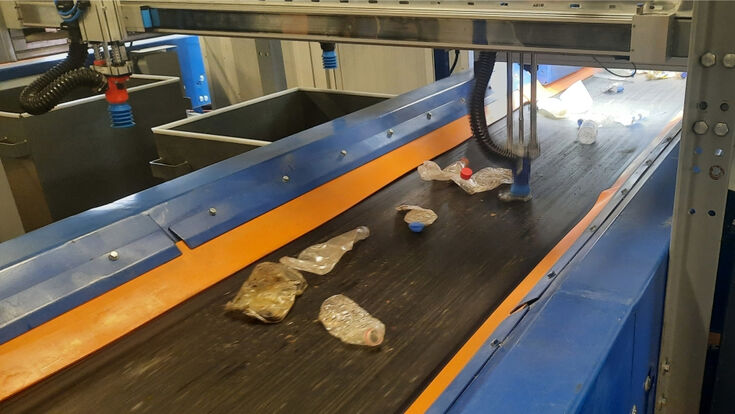Reclaim Waste Melbourne: Proven Techniques for Efficient Liquid Waste Removal
Reclaim Waste Melbourne: Proven Techniques for Efficient Liquid Waste Removal
Blog Article
Enhancing Environmental Sustainability Through Strategic Liquid Waste Removal Solutions
In the realm of environmental sustainability, the efficient monitoring of fluid waste stands as a vital focal point in preserving our environments and securing public health and wellness. The complex internet of obstacles bordering liquid garbage disposal requires a calculated strategy that surpasses standard approaches. By checking out sustainable solutions tailored to certain contexts, markets can not only reduce environmental harm but additionally unlock lasting benefits for their procedures. As we navigate the complexities of liquid waste removal in today's landscape, it becomes increasingly evident that a positive position is important. Allow us embark on a journey to reveal the transformative capacity of critical liquid waste monitoring methods in boosting environmental sustainability.
Importance of Fluid Waste Administration

One of the essential factors why fluid waste monitoring is essential is its direct effect on public health and wellness. Appropriate administration of liquid waste assists stop these health hazards and makes certain the health of the populace.

Challenges in Fluid Waste Disposal
Provided the crucial relevance of correct liquid waste administration in securing public wellness and ecological wellness, it is crucial to address the numerous challenges linked with fluid waste disposal practices. One considerable difficulty is the lack of sufficient framework for the collection, therapy, and disposal of liquid waste.
An additional obstacle is the existence of unsafe materials in fluid waste, consisting of chemicals, heavy metals, and pathogens. Appropriate recognition and therapy of these dangerous components call for specialized understanding and devices, which might not always be easily available. Furthermore, the cost of applying safe disposal methods can be expensive for some districts and markets, causing more and non-compliance ecological damages.
Lasting Fluid Waste Solutions
Amidst the pressing demand for efficient liquid waste administration approaches, the critical of lasting options becomes a paramount worry for environmental conservation and public health. Sustainable liquid waste solutions incorporate a range of cutting-edge technologies and methods targeted at reducing the ecological impact of garbage disposal. One essential technique is the execution of advanced treatment procedures that promote the safe and effective elimination of contaminants from liquid waste streams. In addition, the adoption of round economic climate concepts, such as waste-to-energy efforts and source recuperation programs, can help decrease waste generation and take full advantage of the application of beneficial sources.
In addition, sustainable fluid waste services focus on the preservation of water sources via the application of water recycling and reuse approaches. By repurposing and treating wastewater for non-potable applications like irrigation or commercial procedures, these remedies contribute to water conservation initiatives and minimize the strain on freshwater sources. On the whole, the combination of sustainable fluid waste options not just supports ecological sustainability yet likewise cultivates a healthier and more durable culture for future generations.
Benefits of Strategic Removal Practices
Purposefully implemented removal methods play an essential duty in optimizing liquid waste monitoring systems for ecological sustainability and public health protection. By embracing calculated elimination techniques, companies can significantly lower the ecological effect of fluid garbage disposal. One of the essential advantages is the reduction of harmful pollutants going into water bodies, which assists in maintaining water environments and guarding drinking water resources - Liquid waste removal. Strategic removal techniques likewise add to mitigating the threats of dirt contamination, which can have lasting impacts on farming performance and biodiversity.
Additionally, these practices advertise resource recuperation by allowing the extraction of important materials from fluid go to this site waste streams. Furthermore, calculated elimination methods can improve operational effectiveness and cost-effectiveness by streamlining waste administration processes and optimizing source allowance.
Executing Effective Ecological Techniques
Efficient execution of ecological approaches is paramount in achieving lasting fluid waste administration techniques. To start with, business have to conduct thorough ecological evaluations to identify potential risks and effects connected with their description fluid garbage disposal procedures. By understanding the ecological ramifications of their procedures, companies can create targeted techniques to reduce harm to environments and public wellness.
Furthermore, applying reliable ecological strategies involves setting clear objectives and objectives for fluid waste monitoring - Reclaim Waste. These objectives ought to be certain, measurable, achievable, appropriate, and time-bound (WISE) to ensure liability and track development in the direction of sustainability targets. Companies can additionally utilize innovation and advancement to optimize liquid waste treatment procedures, reduce source usage, and improve overall effectiveness
Cooperation with regulatory firms, stakeholders, and ecological specialists is another crucial element of effective method execution. By involving with outside partners, companies can acquire beneficial insights, access sources, and ensure compliance with ecological legislations and guidelines. On the whole, a tactical and positive strategy to environmental management is important for minimizing ecological risks and promoting lasting sustainability in liquid waste elimination techniques.
Verdict
In final thought, critical liquid waste elimination remedies play a critical duty in improving ecological sustainability. By dealing with the obstacles in liquid waste disposal and executing lasting practices, we can decrease the adverse influence on the environment - Reclaim Waste Melbourne. It is necessary to focus on effective environmental approaches to guarantee the long-lasting health and wellness of our earth
By executing reliable waste monitoring techniques, such as correct collection, therapy, and disposal methods, the risks connected with fluid waste can be considerably reduced.
Offered the essential relevance of proper fluid waste administration in safeguarding public health and wellness and ecological health, it is important to deal with the various difficulties connected with liquid waste disposal practices. Sustainable liquid waste options encompass an array of ingenious innovations and methods intended at minimizing the ecological influence of waste disposal.Tactically executed elimination practices play an important role in websites maximizing liquid waste management systems for ecological sustainability and public health and wellness security. Generally, a strategic and positive approach to ecological management is vital for minimizing environmental threats and advertising lasting sustainability in liquid waste elimination methods.
Report this page